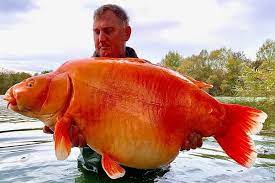
by Bill Schlesinger
A tradition in fisheries management is to throw back the little fellows, so they can grow up, and keep the big ones. Who doesn’t like displaying the biggest fish at the dock? This policy is so ingrained in the culture of fishing, that in many areas we have actively reduced the average size of the typical fish in the population. Photos of the winners of fishing tournaments show that it doesn’t take a huge fish to win anymore; indeed, there are no huge fish to be had.
Many have argued that the management of fisheries should be reversed, so that the big fish are returned to the sea and the little guys taken home. After all, large female fish are responsible for a disproportionate number of eggs to regenerate the population. Marine patrol officers should not look at the catch to see if every fish is large enough; rather, is every fish small enough?
Now a new study off the coast of Norway suggests another reason to return the large fish to the sea. These researchers found that large female fish are more likely to disperse over longer distances in search of mates. In the process, large fish connect different fish populations, reducing the probability of inbreeding, and they disperse their eggs over an increased variety of habitats and over an increased length of seasons, ensuring the survival of more young.
Currently, we harvest about 8 percent of the productivity of the oceans to feed the human population. Much effort is devoted to increase that harvest. If a sustainable harvest of fishes can be achieved, it will likely come from an overhaul of fisheries management; throw the big ones back.
References:
Barneche, D.R., D.R. Robertson, C.R. White and D.J. Marshall. 2018. Fish reproductive-energy output increases disproportionately with body size. Science 360: 642-644.
Olsen, E.M., B. Karlsen and J.E. Skjaeraassen. 2023. Large females connect Atlantic cod spawning sites. Science 382: 1181-1184.
Pauly, D. and N. Christensen. 1995. Primary production required to sustain global fisheries. Nature 374: 255-257.